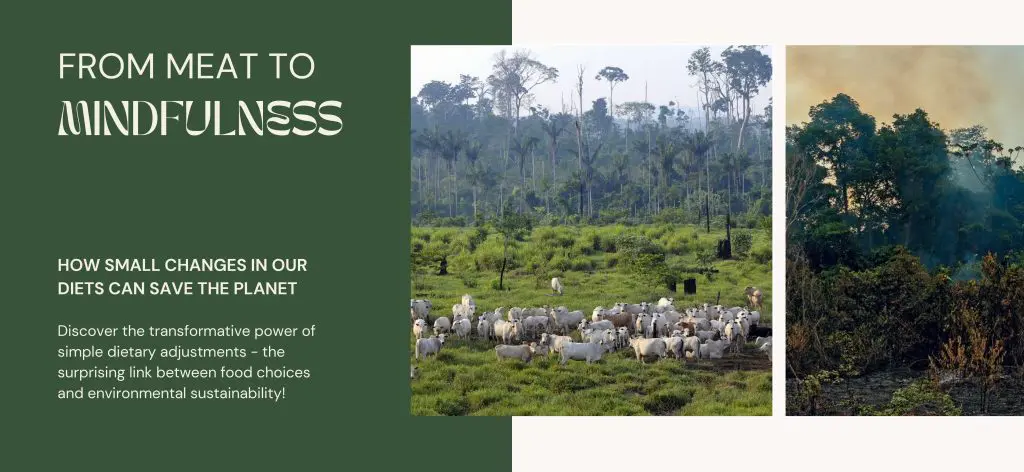Meat production is one of the most significant contributors to environmental degradation, driving climate change, deforestation, water scarcity, and ecosystem destruction. From methane emissions in livestock farming to the clearing of vital forests like the Amazon for grazing and feed crops, its impact on our planet is immense. However, by adopting plant-based alternatives, reducing meat consumption, and supporting sustainable practices, we can collectively work towards a more environmentally friendly and ethical food system. Small changes in our daily choices have the power to protect biodiversity and combat climate challenges while fostering a healthier future for all

As we become increasingly aware of the environmental challenges we face, it is crucial to examine the impact of various industries on our planet. One significant contributor to environmental degradation is the production of meat. From greenhouse gas emissions to deforestation, the toll of meat production on our environment is undeniable. However, hope lies in our ability as individuals to make a difference and transition towards a more sustainable and compassionate food system.
Understanding the Environmental Footprint of Meat Production
Meat production, particularly from livestock farming, is a major source of greenhouse gas emissions. These emissions arise at various stages, from the animals’ digestion to the transportation and processing of meat products. The most concerning component is methane, a potent greenhouse gas released during the digestive process of ruminant animals like cows and sheep. Methane is over 25 times more effective at trapping heat in the atmosphere than carbon dioxide, intensifying climate change.

Moreover, the environmental toll of meat production extends beyond emissions. Water consumption and pollution are major concerns. The extensive water requirements for animal feed production and livestock hydration contribute to water scarcity in many regions. Additionally, the contamination of water bodies with antibiotics, hormones, and manure waste from intensive animal agriculture poses threats to aquatic ecosystems and public health.
The Link Between Industrial Animal Agriculture and Deforestation
In order to meet the growing global demand for meat, large areas of land are converted into agricultural space. This deforestation is particularly severe in regions like the Amazon rainforest, where vast swaths of land have been cleared to make room for livestock and the crops they consume. This loss of forests not only contributes to climate change by reducing the Earth’s capacity to absorb carbon dioxide, but it also leads to biodiversity loss and endangers indigenous communities who depend on these ecosystems for their livelihoods.
The Role of Individuals in Making a Difference
One effective way to make a difference is by reducing meat consumption. Implementing initiatives like Meatless Mondays or substituting some meals with plant-based alternatives can significantly decrease the demand for meat. Embracing a flexitarian or vegetarian diet can have a substantial impact on reducing greenhouse gas emissions and water consumption associated with meat production.
The Power of Conscious Consumerism
As consumers, we have the power to influence the practices of food companies and retailers. Reading labels and opting for certified sustainable meat products allows us to make informed choices that align with our values. By supporting ethical food companies committed to sustainability, we send a clear message that the demand for environmentally friendly and humane products is increasing.
Conclusion
As we become more aware of the environmental toll of meat production, it is crucial to recognize our role in shaping a more sustainable future. By reducing our meat consumption, supporting regenerative and organic farming practices, and practicing conscious consumerism, we can contribute to a more compassionate and environmentally friendly food system. Remember, every small change we make collectively adds up to significant positive impact. Let’s work together and make sustainability a top priority in the choices we make.

4.8/5 - (6 votes)



